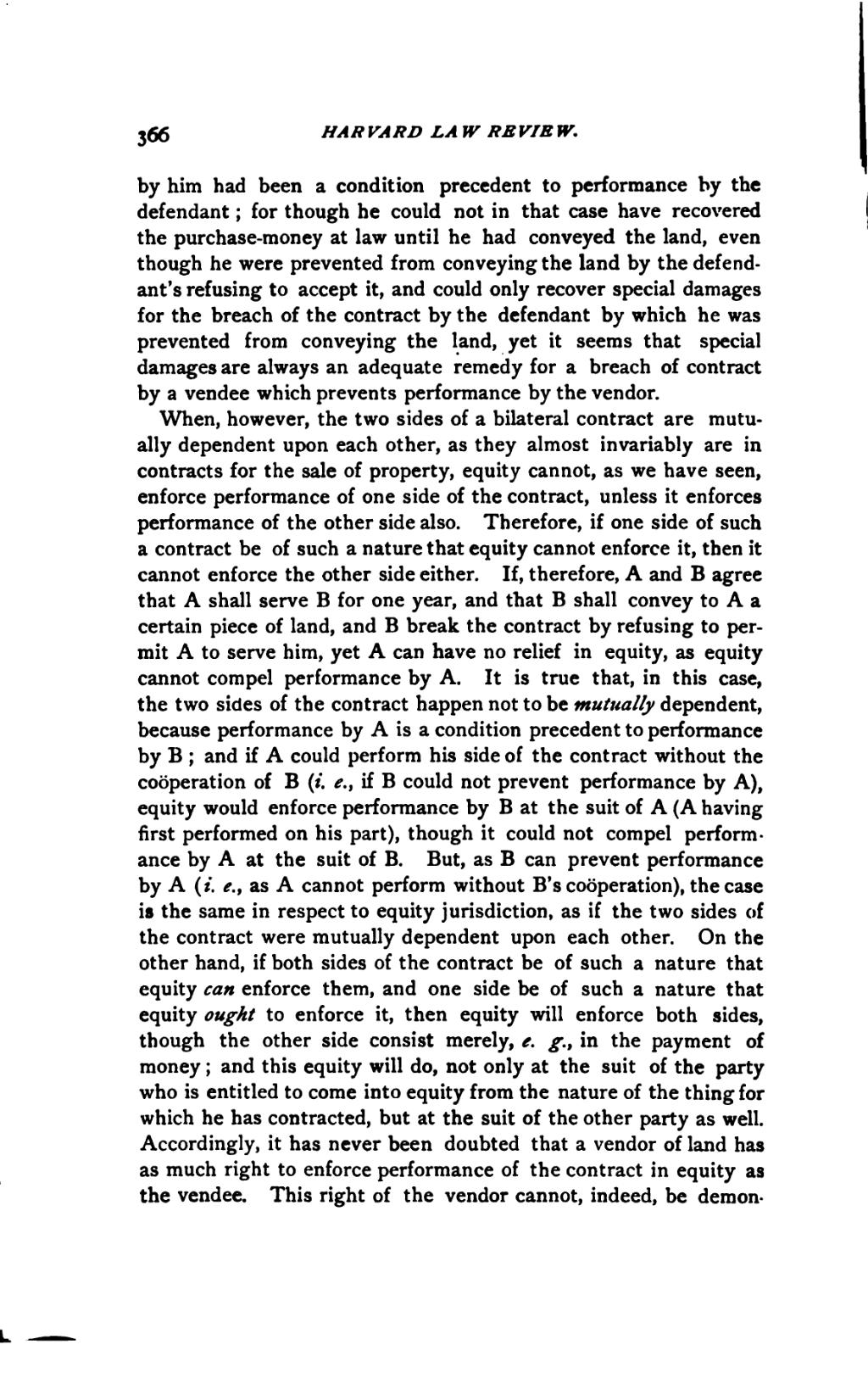by him had been a condition precedent to performance by the defendant; for though he could not in that case have recovered the purchase-money at law until he had conveyed the land, even though he were prevented from conveying the land by the defendant’s refusing to accept it, and could only recover special damages for the breach of the contract by the defendant by which he was prevented from conveying the land, yet it seems that special damages are always an adequate remedy for a breach of contract by a vendee which prevents performance by the vendor.
When, however, the two sides of a bilateral contract are mutually dependent upon each other, as they almost invariably are in contracts for the sale of property, equity cannot, as we have seen, enforce performance of one side of the contract, unless it enforces performance of the other side also. Therefore, if one side of such a contract be of such a nature that equity cannot enforce it, then it cannot enforce the other side either. If, therefore, A and B agree that A shall serve B for one year, and that B shall convey to A a certain piece of land, and B break the contract by refusing to permit A to serve him, yet A can have no relief in equity, as equity cannot compel performance by A. It is true that, in this case, the two sides of the contract happen not to be mutually dependent, because performance by A is a condition precedent to performance by B; and if A could perform his side of the contract without the coöperation of B (i. e., if B could not prevent performance by A), equity would enforce performance by B at the suit of A (A having first performed on his part), though it could not compel performance by A at the suit of B. But, as B can prevent performance by A (i. e., as A cannot perform without B’s coöperation), the case is the same in respect to equity jurisdiction, as if the two sides of the contract were mutually dependent upon each other. On the other hand, if both sides of the contract be of such a nature that equity can enforce them, and one side be of such a nature that equity ought to enforce it, then equity will enforce both sides, though the other side consist merely, e. g., in the payment of money; and this equity will do, not only at the suit of the party who is entitled to come into equity from the nature of the thing for which he has contracted, but at the suit of the other party as well. Accordingly, it has never been doubted that a vendor of land has as much right to enforce performance of the contract in equity as the vendee. This right of the vendor cannot, indeed, be demon-

